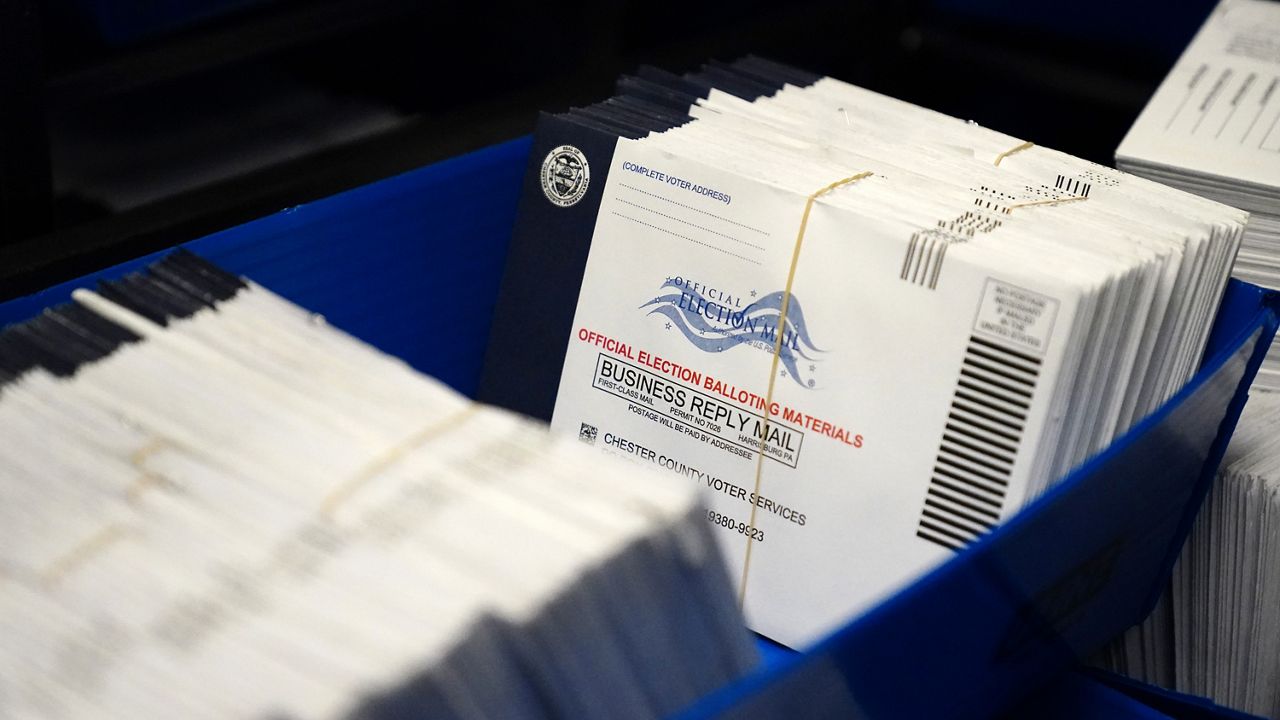More than 200,000 mail-in ballots have still not been scanned for delivery by U.S. Postal Service employees, according to data the agency filed in court Wednesday, but a USPS official says that doesn’t mean those ballots weren’t delivered.
“I’d be very surprised if [remaining ballots] were in the thousands,” said Kevin Bray, who has worked for the Postal Service for 26 years and oversees mail processing for the 2020 election.
In a Wednesday hearing before U.S. District Judge Emmett Sullivan, Bray testified that election mail is often removed from regular mail and put onto an express track, which means those ballots would not receive an exit scan to indicate delivery.
According to data filed in D.C. federal court Wednesday, USPS reported its processing facilities across the U.S. received 224,002 ballots that did not get exit scans. Groups like the NAACP, which filed the lawsuit against the Postal Service, are trying to make sure each ballot sent in by Election Day was postmarked in time. A number of states accept ballots after Election Day, but all ballots must be postmarked by Nov. 3.
“We see a big number, but that doesn’t mean that 300,000 weren’t delivered, we understand that,” said Allison Zieve, who represents the NAACP. “But we don’t know whether it’s 300 or 30 or 3,000 or 3.”
Judge Sullivan had ordered sweeps of mail processing facilities in 15 states by 3 p.m. Tuesday, but lawyers for the Postal Service flouted the order, saying they conducted sweeps on their own schedule.
“Our understanding at the hearing was that the Court did not intend for the Postal Service to make operational changes on Election Day, but rather to confirm that the existing processes were functioning as anticipated,” attorneys representing the agency wrote in a court filing.
Amid a close Presidential election, the sweeps were ordered in several key swing states, including in the areas of Central Pennsylvania, Philadelphia, Houston, South Florida, Lakeland, and Arizona.
In his testimony Wednesday, Bray said sweeps of USPS facilities were conducted all day on Election Day, starting at 3 a.m. in some plants.
“Everybody was on the floor,” Bray said. “We call it all hands on deck, all the support staff, all the supervisors constantly looking for and monitoring for election mail.”
Attorneys for the plaintiffs say they now want to coordinate with the Postal Service to do targeted sweeps of facilities by Friday, when key states like Pennsylvania will stop counting ballots.
They have requested to hear directly from the district managers of at least four facilities: Greensboro, Mid-Carolinas, Western Pennsylvania and Philadelphia.
An attorney for the Postal Service said they are already surveying the Greensboro, NC, facility after a report that as many as 3,000 ballots were found there.
Still, the USPS says the perception that thousands of ballots are missing is incorrect.
“The assumption that there are unaccounted ballots within the Postal Service network is inaccurate,” USPS spokesperson David Partenheimer said in a statement to Spectrum News. “We remain in close contact with state and local boards of elections and we do not currently have any open issues. We will continue to accept, process and deliver ballots as they are entered into the network.”
In court documents filed Wednesday, U.S. Postal Inspector Daniel Brubaker reported the USPS found 13 total ballots in facility sweeps on Tuesday. Those ballots all came from Pennsylvania.
On Wednesday afternoon, the court also ordered the Postal Service to conduct additional sweeps of all Texas postal facilities and return any additional ballots to elections offices by 5 p.m. local time. The order requires USPS to report the Texas findings to the court by 10 a.m. Thursday morning.
Judge Sullivan scheduled another status hearing for 11 a.m. on Thursday.
